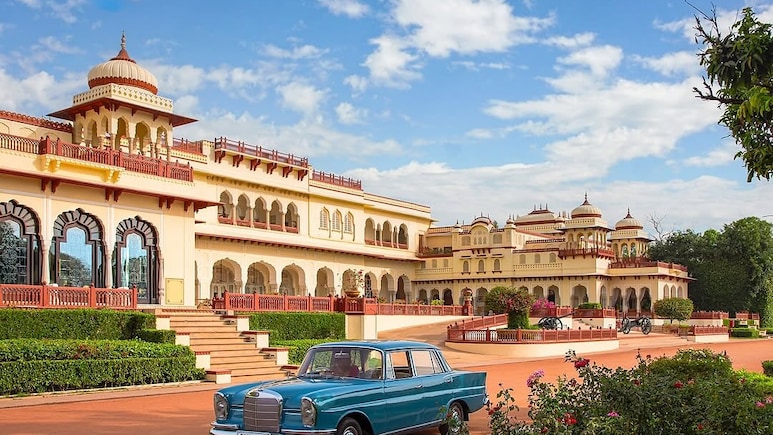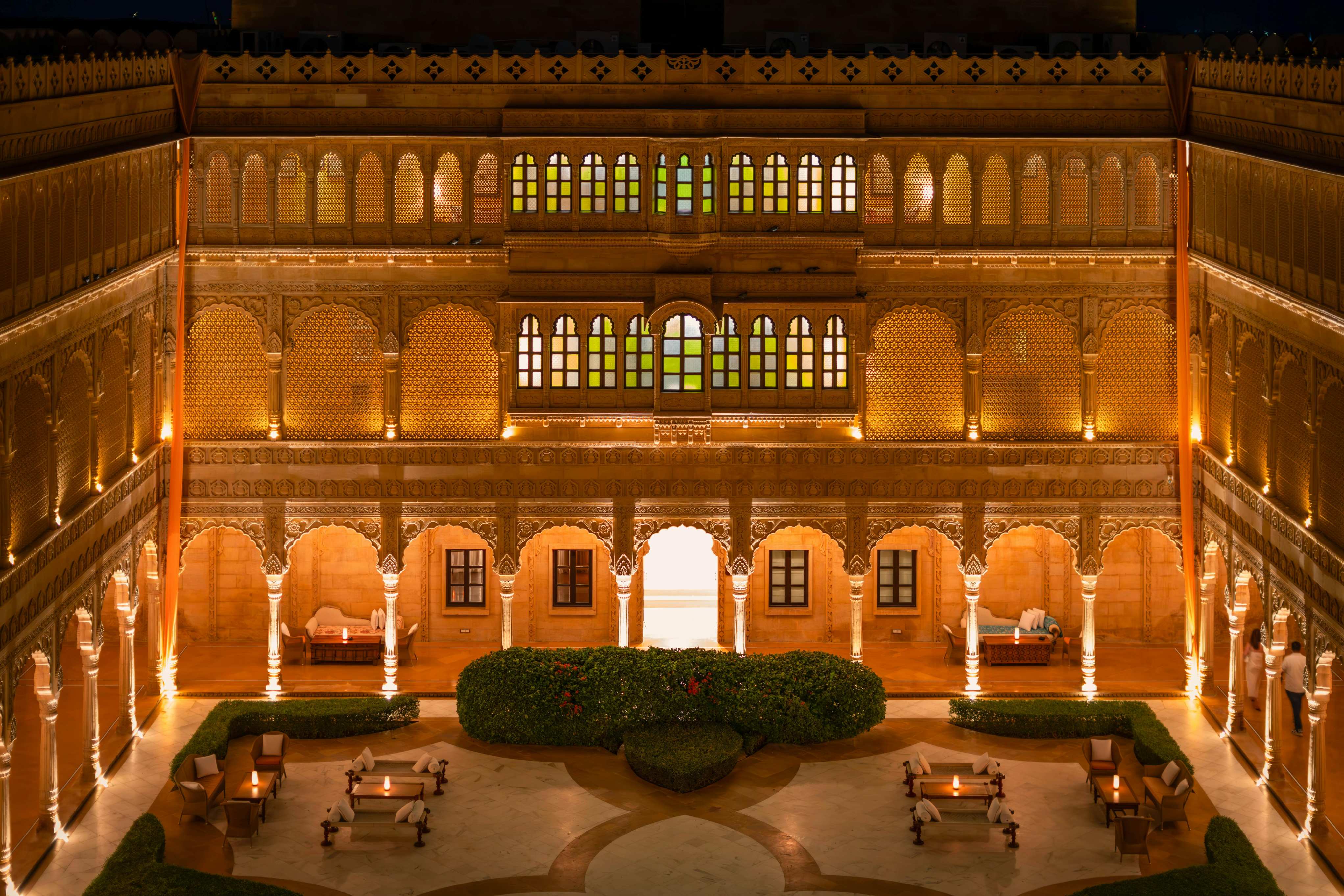
The Goods and Services Tax Council's September 2025 decision affects several sectors, and the hospitality industry is no exception.
The change is welcome news for many travellers, though not for those booking India's luxury hotels.
From September 22, rooms priced up to Rs 7,500 per night attract 5% GST, down from 12%. However, any tariff above that threshold continues to draw 18% GST, keeping high-end stays firmly in the luxury-tax bracket.
There is, nonetheless, some relief for luxury travellers: the GST on premium hotel rooms has not increased at a time when many luxury goods are moving into the 40% tax slab. This respite arrives as Indians increasingly prioritise travel, including premium and luxury experiences.
What The Tax Looked Like Before And After
Here's a quick crash course of how GST on hotel stays has changed:
- Up to Rs 1,000: 0% GST (unchanged)
- Rs 1,001-Rs 7,500: 12% GST (till September 21, 2025) - then 5% (without Input Tax Credit)
- Above Rs 7,500: 18% GST (unchanged)
The relief is squarely aimed at budget and mid-tier travellers. For them, a Rs 6,000 hotel bill now carries Rs 300 GST instead of Rs 720. But for those staying at hotels where tariffs comfortably exceed Rs 10,000, the tax outgo hasn't changed (which seems like good news).
Why Luxury Stays Still Might Attract Travellers
Let's break it down.
Hotels such as The Oberoi in Mumbai, The Leela Palace in New Delhi and ITC Maurya typically charge between Rs 10,000 and Rs 25,000 per night for standard rooms, while suites range from about Rs 80,000 to well over Rs 1.5 lakh per night. All of these tariffs attract 18% GST.
For example, a Rs 20,000 room incurs Rs 3,600 in GST, bringing the pre-extras total to Rs 23,600. The unchanged slab underscores the principle that premium services are treated as luxury consumption, though not "ultra-luxury" that might otherwise fall into a 40% tax band.

The GST on premium hotel rooms has not increased. Photo: Pexels
Consider another illustration.
Presidential suites at India's top hotels show how minimally the recent GST change affects the luxury segment. At The Oberoi, Mumbai, the Presidential Suite is often priced above Rs 1.5 lakh per night; at The Oberoi, Bengaluru, comparable suites typically exceed Rs 1 lakh.
The Shangri-La Eros, New Delhi, lists its Presidential Suite or Horizon Club Premier Suite between about Rs 80,000 and Rs 1.5 lakh, while The Leela Palace, New Delhi, also offers elite suites that exceed Rs 1 lakh. All remain subject to 18% GST, which means the tax on such rooms is roughly Rs 10,000-Rs 30,000, rather than more under a hypothetical higher band.
Here's a quick breakdown:
- The Oberoi, Mumbai - Presidential Suite at Rs 1,50,000
- At 40% GST (hypothetical): Rs 60,000; total Rs 2,10,000
- Currently at 18%: Rs 27,000; total Rs 1,77,000; additional outgo under 40% would be Rs 33,000
- Shangri-La Eros, New Delhi - Presidential Suite at Rs 80,000
- At 40% GST (hypothetical): Rs 32,000; total Rs 1,12,000
- Currently at 18%: Rs 14,400; total Rs 94,400; additional outgo would be Rs 17,600
The Mid Market Impact
Where the impact is visible is in the mid-market. Rooms priced between Rs 3,000 and Rs 6,500, common in business hotels or family-oriented properties, will now be taxed at 5%. This could mean lower costs for frequent domestic travellers, especially ahead of the festive season when demand peaks.
Lincoln Bennet Rodrigues, Chairman and Founder, Bennet & Bernard, Goa, welcomes the GST cut. In a statement to NDTV, Rodrigues says, "The GST rationalisation announcement is expected to increase savings, boost consumption, and improve liquidity and lift overall business sentiment. This is welcome particularly ahead of the festive season. For the real estate sector, this buoyancy is meaningful, as it will reduce the cost of construction."
Though he was speaking in the context of housing, the idea translates neatly to hospitality: more savings for consumers at the mid-level boost confidence and spending.
Two Different Stories
The GST cut has created a sharp divide. Budget and mid-range stays are now more affordable, helping both consumers and hotels in this segment. But luxury hotels remain unchanged in their tax status. They continue to be treated as premium consumption, where a high tax is part of the deal.
For most travellers, that means holidays and work trips may now pinch the pocket a little less.
For luxury hotels, indulgence will continue to carry a premium price tag. However, the most high-end rooms in the most luxurious of hotels in India still attracting an 18% GST is good news for luxury travellers.
READ MORE: Under The New GST Rates, How Much Will A Movie Date Cost You?
Track Latest News Live on NDTV.com and get news updates from India and around the world

